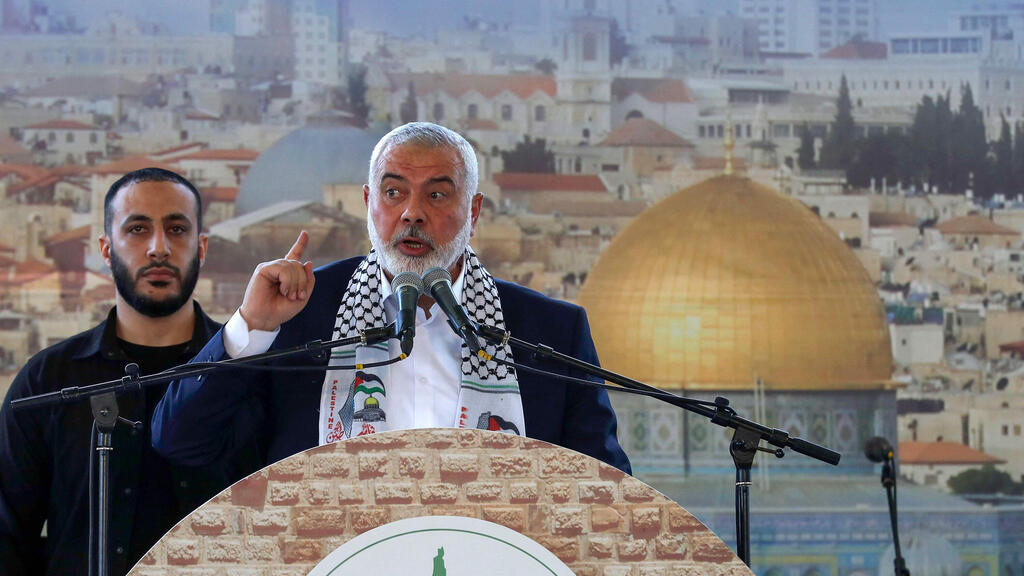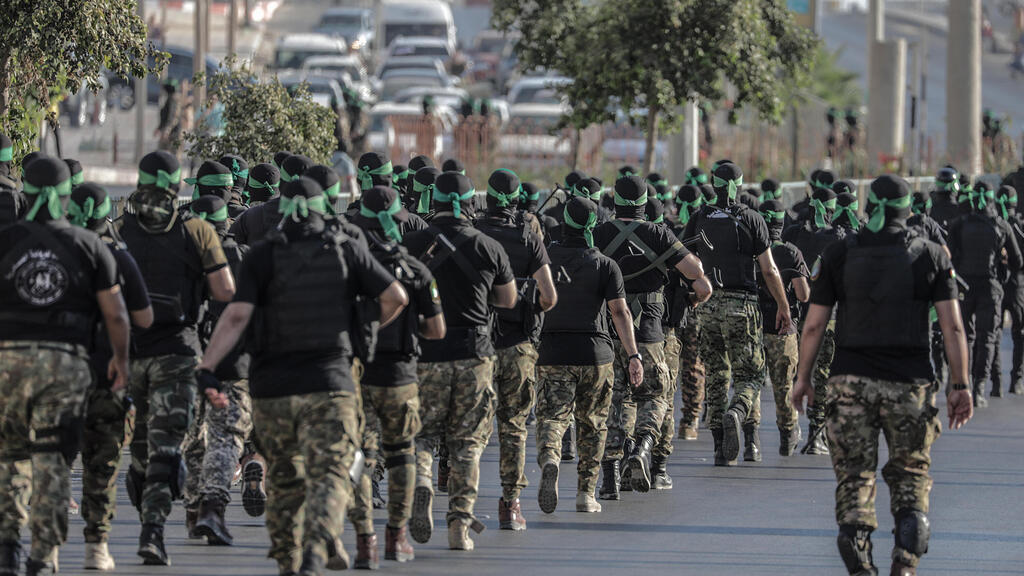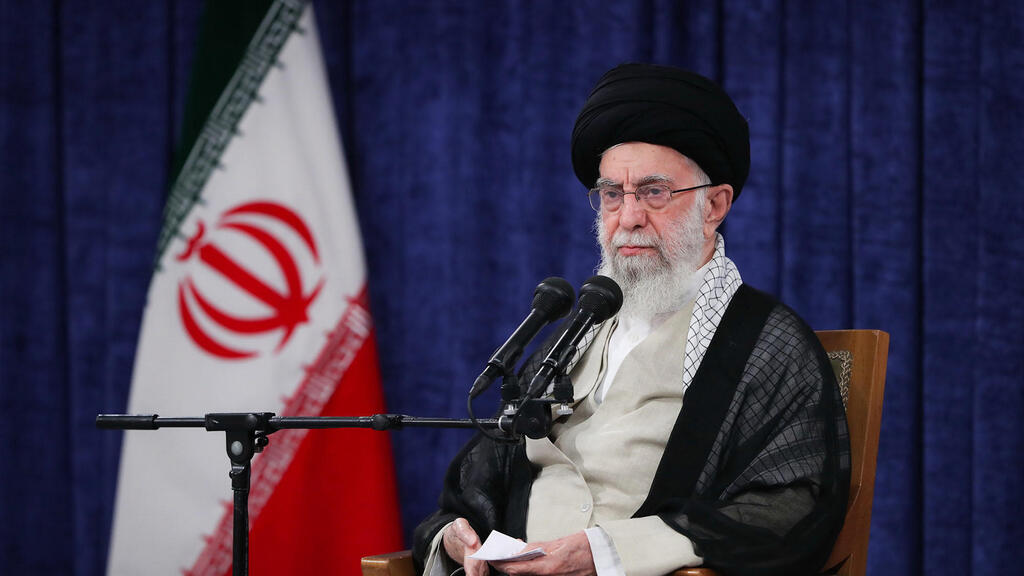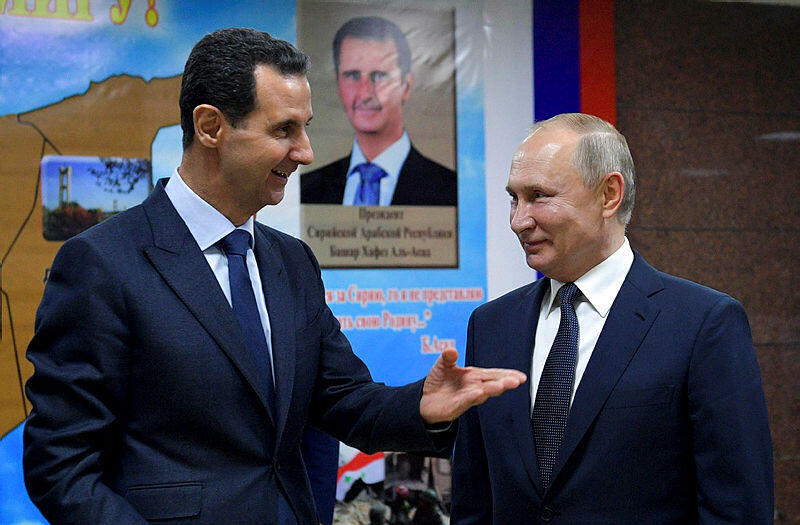Getting your Trinity Audio player ready...
Hamas and the Iranian-backed Syrian government are reviving their ties, more than a decade after the Palestinian militant group that rules the Gaza Strip decided to break relations with Damascus and leave the country.
In a September 15 statement, Hamas announced that it is resuming relations with Damascus, saying it “continues to build and develop solid relations with the Syrian Arab Republic, within the framework of [the] decision to resume its relations with brotherly Syria.”
As such, a delegation of Hamas officials is expected to arrive in Damascus next week.
Prof. Mkhaimar Abusada, head of the political science department at Al-Azhar University in Gaza City, told The Media Line that he believes that the revival of ties is taking place now for two reasons.
The first has to do with the outcome of the civil war in Syria. “In a way, we can see that the Syrian regime has succeeded in winning the internal battle against the opposition, whether they are Islamist or the so-called democratic forces,” said Abusada.
He pointed out that a number of Arab countries including the UAE have also reinitiated diplomatic ties with the Syrian regime.
Abusada said the second reason is that the Middle East has been divided for a long time between two camps: that led by what he called moderate Arab countries such as Saudi Arabia, UAE, Egypt and Jordan and another that he branded the “resistance camp,” which led by Iran and includes Hezbollah, Syria and Islamic Jihad. Hamas, he said, finds itself in the latter group as it becomes distanced from members of the former.
“There was no place in the so-called moderate camp for Hamas, which has been isolated by many countries such as the UAE and Saudi Arabia, who classify them as a terrorist organization,” he said.
“Hamas has had no option but to join the so-called resistance camp in the region, which would probably solidify its existence and its government in the Gaza Strip,” he continued.
Despite Hamas restoring ties with the Iranian-backed Syrian government, Hazem Salem Al Dmour, the general manager at the Amman-based think tank STRATEGIECS, says that this does not mean that the relations between the group and Tehran will change significantly.
“The resumption of relations between Hamas and Syria may not change the nature of relations between Hamas and Iran, which are already based on a set of interests that bind the two parties,” he told The Media Line.
Still, he continued, Hamas’ return to Damascus provides Iran and Hamas with a geographical space in which the two sides can conduct joint military exercises, utilize a corridor for the transfer of weapons and share missile technology and drones.
“Thus, Syria provides the appropriate ground to advance the interests of the two parties,” he said.
Alex Grinberg, an Iran expert at the Jerusalem Institute for Strategy and Security, agreed with this assessment, telling The Media Line that reviving ties is in effect the restoration of a status quo that existed before the Arab Spring that began in 2011.
Citing comments from senior Hamas leaders such as Ismail Haniyeh and Yahya Sinwar, Abusada noted that Iran has long been supporting Hamas politically, financially and militarily.
Hamas has “indicated many times that if it wasn’t for the Iranian military and financial support, [it] could not have stood against Israel in previous wars or previous escalations,” he said.
Hamas knows that its relationship with Iran is a strategic one, and it cannot afford to ignore the Islamic Republic, he continued.
Grinberg said, however, that it is also important to notice that as opposed to Hizbullah, Hamas is not an Iranian proxy but rather a “client,” something he said is a crucial difference.
“Hamas may receive or refuse services from Tehran in exchange for something. But still, it is Hamas who decides whether they want more or less ties with Damascus or Tehran. They are coming closer, but it is the two parties who decide what’s better for them,” he said.
Abusada pointed out that there is no consensus within Hamas and its parent organization the Muslim Brotherhood on this decision.
“There is a lot of criticism within Hamas itself and within the so-called Muslim Brotherhood for such a decision, since the Islamists have been suffering over the past 11 years at the hands of the Syrian regime,” he said. He added that regardless of criticism from the Muslim Brotherhood and within its own ranks, the Hamas leadership has decided that this is the best decision for their own political interests and survival.
Al Dmour added that Hamas’ resumption of relations with Damascus is linked to its desire to play a regional political role as opposed to merely being considered an “armed resistance movement.”
“This quest is linked to Hamas’ ambitions to participate in shaping the future of the West Bank, especially considering the increasing possibilities of the collapse of the security situation there,” he noted, referring to the current tensions between Israel and the Palestinian Authority that rules the West Bank.
On the other hand, Abusada believes that Damascus is not particularly eager to normalize relations with Hamas, feeling betrayed by the group that was based in Damascus for over 10 years, and given every accommodation by the Syrian regime after it was expelled from Jordan in 1999.
“In Syria, they were treated in a very respectful way, and when the internal Syrian revolution erupted Hamas decided to depart from Syria,” he said.
Regarding Iran and Hamas’ shared archfoe Israel, Grinberg says that this rapprochement does not significantly increase the threat posed to it as Syria is controlled by Iran and Russia and the renewed ties would not really change the security landscape.
On the other hand, Al Dmour said, Israel should be aware of the fact that the revival of ties could be linked to its new maritime border deal with Lebanon, as it leads to an altered security equation with Hezbollah now becoming linked to a deal with Israel.
In fact, he said, the resumption of relations between Hamas and Damascus becomes more important should there now be a decline in Hizbullah’s abilities to launch attacks or target Israel from inside Lebanese territory.





